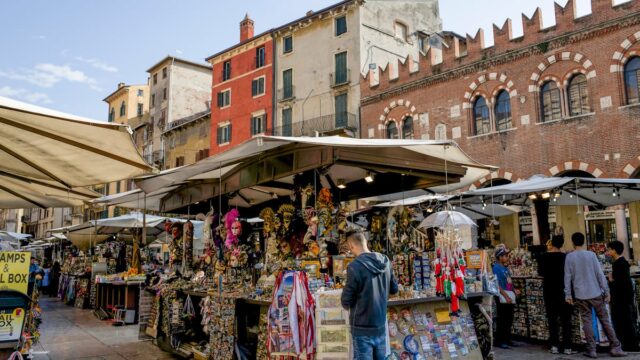In today’s digital age, online marketplaces are changing the way we shop, buy, and sell goods. But what exactly is a marketplace? How do they differ from traditional retail models? In this article, we’ll explore example of marketplaces, dive into various marketplace models, and discuss why they’ve become so popular in recent years.
What is a Marketplace?
A marketplace is an online platform where buyers and sellers can meet and exchange goods or services. Unlike traditional e-commerce websites, which typically involve one seller offering products, a marketplace hosts multiple sellers, creating a variety of options for buyers.
Definition of a Marketplace in Business
At its core, a marketplace connects buyers and sellers on a single platform, facilitating transactions. The platform itself does not own the products being sold but offers a space where different sellers can list their goods. Marketplace platforms typically charge a commission or a fee for facilitating these transactions.
Popular Examples of Online Marketplaces
With the rise of the internet, many platforms have emerged that enable users to buy and sell in a marketplace environment. Here are a few examples:
Top E-Commerce Marketplace Examples in 2025
Some of the most successful and widely recognized online marketplace examples today include:
- Amazon – The largest global e-commerce platform, offering products from numerous vendors across various categories.
- eBay – Known for its auction-style listings, eBay is a major player in B2C and C2C marketplaces.
- Etsy – Specializes in handmade, vintage, and unique goods, offering a niche marketplace for creative entrepreneurs.
These platforms have revolutionized the way people buy and sell products online, offering users convenience and a wide variety of options.
Types of Marketplaces: Understanding the Models
There are various types of marketplaces, and understanding the key differences can help you better navigate the world of online commerce.
B2B Marketplace Examples and Their Business Models
A B2B marketplace connects businesses with other businesses, allowing them to purchase goods in bulk, often at a discount. Examples of successful B2B marketplaces include:
- Alibaba – A global leader in B2B commerce, allowing manufacturers and wholesalers to connect with businesses worldwide.
- Amazon Business – A platform for businesses to purchase products in bulk from verified sellers.
These platforms cater to larger transactions, often involving manufacturers, suppliers, and distributors.
B2C Marketplace Examples You Should Know
B2C (business-to-consumer) marketplaces directly connect businesses to individual consumers. These platforms typically have a broad range of products and services, such as:
- Amazon – Selling everything from books to electronics, Amazon has become a go-to B2C marketplace.
- Walmart Marketplace – Walmart’s online marketplace offers a vast selection of products from third-party sellers.
These platforms are more focused on providing consumers with a variety of product options in one convenient location.
Peer-to-Peer Marketplace Examples
Peer-to-peer (P2P) marketplaces allow individuals to sell directly to other individuals, often cutting out the need for traditional retail intermediaries. Popular P2P marketplace examples include:
- Airbnb – A global platform where people can rent out their homes or apartments to travelers.
- Uber – Although primarily a ride-sharing platform, Uber operates as a peer-to-peer marketplace for drivers and riders.
These marketplaces foster a more personal and direct exchange between individuals.
Marketplace Business Models Explained
The business model behind a marketplace plays a significant role in its success. There are different marketplace models, each with unique characteristics.
How Marketplace Platforms Work
Most marketplace platforms function on a commission-based model. They earn a percentage of each transaction that takes place on their site. Some may also charge listing fees for sellers or offer premium services for enhanced visibility.
Marketplaces can also be subscription-based, where users or sellers pay a monthly or annual fee to be part of the platform. Digital marketplaces like Shopify offer users the ability to create their own storefronts while providing a platform for transactions.
Why the Marketplace Business Model Is Growing
The marketplace business model has grown exponentially for a few key reasons:
- Low overhead costs: Unlike traditional stores, marketplaces don’t have to manage inventory or deal with shipping directly. Sellers handle those aspects themselves.
- Access to a global audience: Marketplaces enable sellers to reach a wider customer base, including international buyers.
- Trust and security: Many marketplaces offer built-in features like buyer protection, ratings, and reviews, increasing trust in the platform.
Niche Marketplaces: Small but Profitable
While large marketplaces like Amazon and eBay dominate the e-commerce landscape, there’s a growing trend of niche marketplaces that cater to specific audiences or products.
Examples of Niche Marketplaces in 2025
Some niche marketplaces have become quite successful in catering to specialized needs. Examples include:
- Reverb – A marketplace for buying and selling musical instruments.
- Depop – A fashion marketplace targeting younger, fashion-forward consumers.
These platforms focus on specific markets, providing unique offerings that attract loyal customers.
Global Marketplace Examples You Should Be Aware Of
Global marketplaces connect buyers and sellers from all over the world. These platforms help small businesses expand their reach internationally.
Leading Global Marketplace Platforms
- Alibaba – The world’s largest global marketplace for B2B transactions.
- Amazon – While known for its B2C offerings, Amazon has a global presence and allows international sellers to list their products.
These global marketplace examples showcase how businesses can take advantage of international opportunities.
Marketplace vs Traditional Retail: Key Differences
While traditional retail involves physical stores or direct sales between a brand and a customer, marketplaces operate entirely online and often involve multiple sellers offering similar or identical products.
Why Marketplaces Are Changing the Retail Landscape
- Cost-Effective for Sellers: Traditional retail models often require physical stores and inventory management. Marketplaces allow sellers to reach a larger audience without the overhead costs.
- Better Variety for Consumers: Unlike traditional retail, which may carry limited stock, online marketplaces host multiple sellers, offering a wider range of options.
How to Build Your Own Marketplace Platform
For those looking to create their own online marketplace, the process involves several steps:
- Choosing a business model – Decide if you will charge listing fees, commissions, or use a subscription model.
- Building the platform – You’ll need to build a website or use marketplace platform solutions such as Shopify or Magento.
- Attracting sellers – Create incentives for sellers to join, like low fees or marketing support.
Key Considerations When Creating a Marketplace Business
- User experience: Make sure the platform is easy to use for both buyers and sellers.
- Security: Ensure payment systems are secure and protect customer data.
- Customer service: Offer support to resolve issues between buyers and sellers quickly.
Final Thoughts on Examples of Marketplaces
Why Marketplaces Are the Future of E-Commerce
In conclusion, marketplaces represent the future of e-commerce. They offer an efficient, scalable model for both buyers and sellers. Whether you’re looking for a specific niche or a global marketplace, there’s a platform that fits your needs.
Frequently Asked Questions
- What is an example of an online marketplace?
Examples include Amazon, eBay, and Etsy. These platforms connect multiple sellers with consumers, offering a wide range of products. - What types of marketplaces exist?
The main types of marketplaces are B2B (business-to-business), B2C (business-to-consumer), and peer-to-peer (P2P), each with different models of interaction between buyers and sellers. - How do online marketplaces make money?
Most online marketplaces make money by charging commissions on transactions, listing fees, or offering subscription services for sellers. - What is a niche marketplace?
A niche marketplace focuses on specific products or services for a particular audience, such as Reverb for musical instruments or Depop for fashion.






















